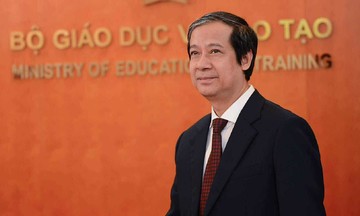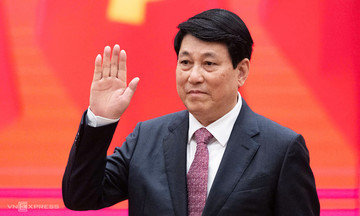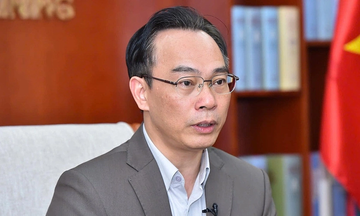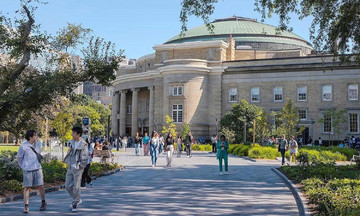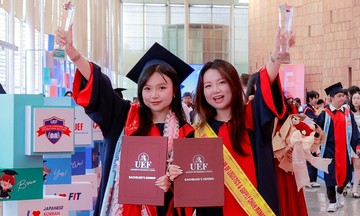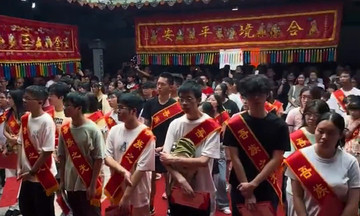The UK Home Office released these figures in late August. This number includes international students at all levels of study and their dependents (usually spouses).
Indian students received the most visas – over 35,000, accounting for about one-third of the total. China followed with approximately 9,600 study visas granted.
The number of Vietnamese students receiving visas was around 400, 1.5 times higher than last year.
 |
The University of Liverpool campus, UK. Photo: University of Liverpool |
The University of Liverpool campus, UK. Photo: University of Liverpool
The increase in study visas comes as the UK is tightening the number of international students to control immigration. According to the white paper on migration published by the UK Home Office mid-this year, the country will implement a 6% tax on tuition fees and reinvest the revenue into the higher education system to support and encourage domestic students to attend university. The tax is estimated to generate GBP 600 million, according to Universities UK, an organization representing over 140 universities in the country.
Dependents of international students, usually spouses, must demonstrate English proficiency at level A1 for entry, A2 for visa renewal, and B2 for settlement. This is a new requirement. The post-study work visa duration has been reduced from two years to 18 months.
Universities must maintain a minimum student enrollment rate of 95% and a course completion rate of 90% to be eligible to recruit international students.
Another new regulation requires foreigners to live in the UK for at least 10 years, instead of the previous five, before applying for settlement, unless they can demonstrate significant economic and social contributions. Highly skilled individuals making substantial contributions, such as doctors, engineers, and AI specialists, are prioritized.
Currently, tuition fees for international students from outside the EU range from GBP 20,000 to GBP 41,000 (0.7 to 1.47 billion VND) per year. For medicine, the figure rises to nearly GBP 68,000.
Over 730,000 international students came to the UK in the previous academic year, contributing GBP 10 billion to the country's economy. UK universities offer the advantage of shorter degree programs: about three years for a bachelor's degree and one year for a master's degree, which is at least one year less than in other countries. The most popular fields of study are business and management, attracting over one-third of all international students.
Doan Hung




